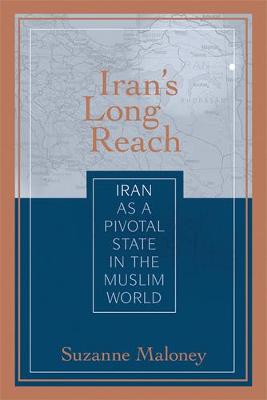By virtue of its size, history, resources, and strategic location, Iran under any circumstances would pose particular relevance for American policy, but the 1979 revolution and the political system that it wrought placed Iran squarely at the heart of U.S. security challenges. As the third book in the series from the Institute's Muslim World Initiative on pivotal states in the Muslim world, this lucid and timely volume sheds much-needed light on Iran's strikingly complex political system and foreign policy and its central role in the region. Suzanne Maloney systematically outlines Iran's sources of influence in the Muslim world, including its strategic ambitions and dynamism, political innovations, economic clout, religiocultural institutions, and historical and cultural linkages. Maloney argues that although its leadership and rhetoric often appear stagnant, Iran is in reality one of the least static societies in the Muslim world.
Iran today is fraught with pressures and tensions as a result of a disproportionately young population, an economy subject to considerable external pressures and cyclical fluctuation, and the massive transformations occurring along its borders in Iraq and Afghanistan. Maloney analyzes the social, economic, and regional forces that are driving Iran toward change and asks what these factors mean for U.S. foreign policy. She concludes that despite historical, legal, and practical constraints, the United States must ultimately engage Iran on a range of issues. Insightful and balanced, this volume presents a realistic, precise, and objective assessment of Iran for policymakers, academics, as well as the interested public.
- ISBN10 160127033X
- ISBN13 9781601270337
- Publish Date 1 October 2008
- Publish Status Active
- Publish Country US
- Imprint United States Institute of Peace Press
- Format Paperback
- Pages 156
- Language English
